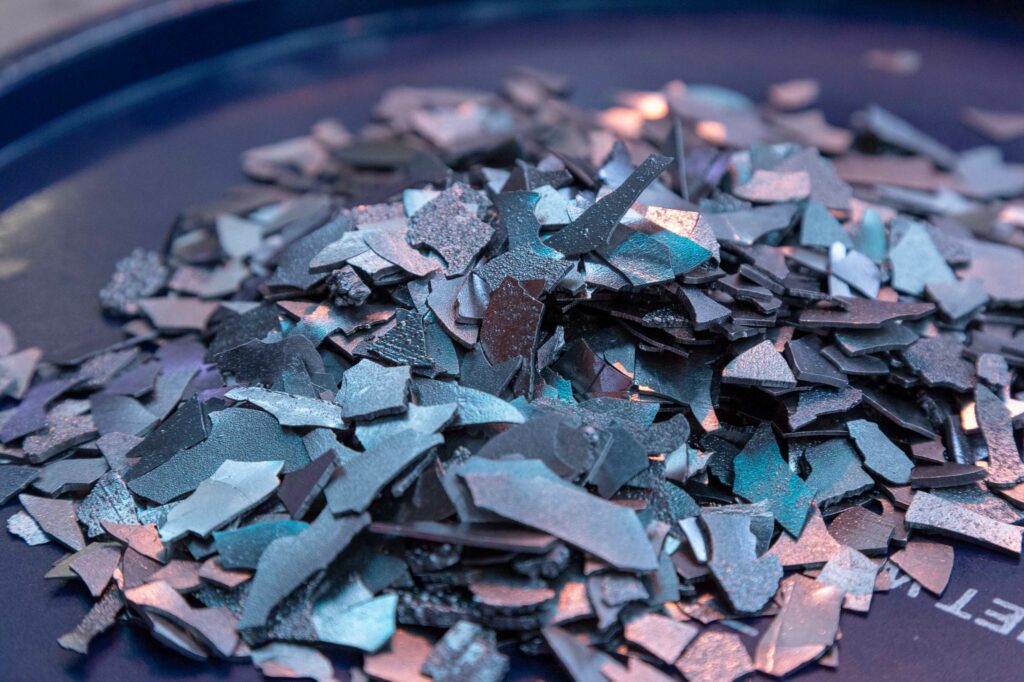Met4Tech: Circular Economy Centre for Technology Metals – including Cobalt
Met4Tech CE Centre brings together world-leading researchers to maximise opportunities around the provision of technology metals, including cobalt, from primary and secondary sources, and leaders in materials stewardship and clean manufacturing.
The Met4Tech project will look at new sources of sustainable supply, technology innovations, and the policy context for the UK. Through the integrated research studies and collaborative case studies with the policy and industry partners, this project will create a technology-metals roadmap to illustrate the circular and sustainable solutions to these challenges.
Theme two of the Centre will carry out several detailed case studies in close collaboration with the project partners, as follows: (1) Granite-related (Li, Sn, W) mineralisation and related mine waste in Cornwall which involves eleven partners; (2) Cobalt deposits mined by large scale mining (LSM) and artisanal and small-scale mining (ASM) which involves the Cobalt Institute, Pact and Levin Sources; (3) Carbonatite-related REE mineralisation and mine wastes; and (4) maximising the value of (Te, Bi, W) by-products from gold mining.
The new Circular Economy Centre for Technology Metals (Met4Tech) is one of five new Circular Economy (CE) Centres funded by the UKRI, that will explore circular solutions for materials flows in different industries (textiles, construction minerals, chemicals, metals) to provide environmental benefits and promote the UK economy. The National Interdisciplinary Circular Economy Research (NICER) Programme is the largest UK Research & Innovation (UKRI) investment (£30 million) to date in circular economy. The five new CE Centres work together through a national coordinating Circular Economy Hub led by the University of Exeter Business School. The Met4Tech project is led from Exeter, in the Camborne School of Mines (PI - Prof Frances Wall) together with colleagues from Engineering and the Business School. The overall award is £4.44 million for four years (Jan 2021 – Dec 2024) along with £1.6 million as cash/in-kind contributions.
The project partners include five research institutions (British Geological Survey, Universities of Birmingham, Leicester, Manchester, and Exeter), and many (>40) industry companies and UK government policy groups, as well as international organisations, as outlined here. In addition, there is an independent Advisory Board comprised of experts from several national and international organisations and leading global companies.
The Circular Economy (CE) is a revolutionary alternative to a traditional linear, make-use-dispose economy. It is based on maintaining continuous flows of resources at their highest value for the longest time period and then recovering, cascading and regenerating products and materials at the end of each life cycle. The CE approach for the Met4Tech project is based on the key concepts established by the Ellen MacArthur Foundation, as follows: (1) reducing waste and pollution; (2) retaining key materials (such as technology metals) for use in strategic applications and in products with longer service life; and (3) helping to regenerate natural systems (reduce carbon, promote biodiversity).
The Met4Tech project covers the full value chain with 4 thematic areas and cross-cutting topics: 1. Virtual Data Observatory - Stocks/Flows & Practices; 2. CE Principles for Raw materials & new Geomodels; 3. Design, Manufacturing & Recycling Technologies; and 4. Roadmap for a new technology metals circular economy system.
The technology metals include: Lithium, Cobalt, Rare Earths, Tellurium, Selenium, Platinum group, Indium, Tungsten, Tin, and many others. These metals are needed for most of the key applications and technologies required for clean transport, and the energy transition towards Net Zero carbon (auto catalysts, batteries, electronics, fuel cells, magnets, phones, solar panels, superalloys, wind power, etc). These metals are considered critical raw materials in certain jurisdictions.
The Met4Tech CE Centre welcomes active participation and networking for interested stakeholders. The collaborations with the industry partner organisations will include interviews, workshops, deep dive/spark sessions, case studies, annual conferences, and training opportunities. The main outputs from Met4Tech will be a National Virtual Data Observatory (at BGS), new Circular Economy Geo-Models (regional and global case studies), innovations in design and manufacturing processes, the circular economy Roadmap and Agent-based Model, Scenarios analysis, User testimonials, policy impacts, publications, and citizen science events.
For further information please visit Home - Met4Tech or contact: Met4Tech@exeter.ac.uk

